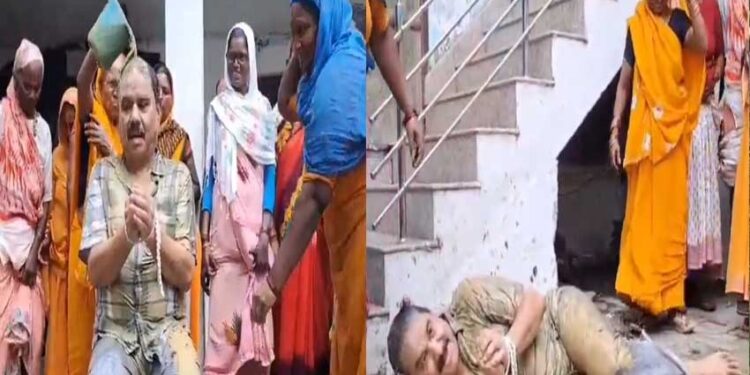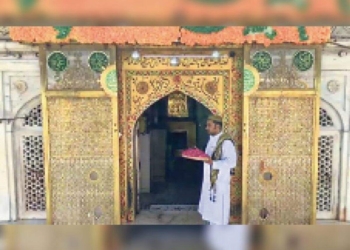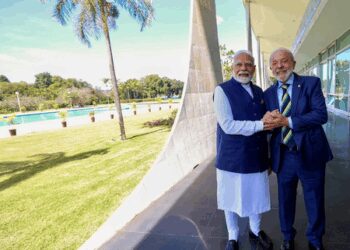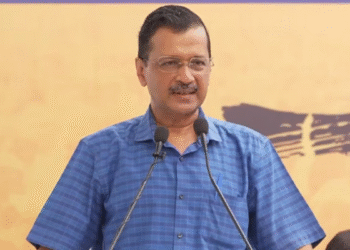Ayodhya Prasad Khatri (English: Ayodhya Prasad Khatri, born: 1857 – died: January 4, 1905) was an early strong supporter of Hindi Khari Boli. He was a presenter in the court in Muzaffarpur (Bihar).
life introduction
Ayodhya Prasad Khatri was born in 1857 AD in Sikandarpur, District Ballia (Uttar Pradesh). Uttar Pradesh became a major victim of the atrocities of the British due to the Sepoy Mutiny of 1857, due to which his father Shri Jagjivan Lal Khatri, like other families, got displaced from his village Sikandarpur and settled in Muzaffarpur (Bihar) and started selling books in Kalyani to live his life. Opened a shop. Ayodhya Prasad Khatri’s father recited couplets of Surdas and Tulsi to him since childhood and his mother made him memorize Geeta.
Education
Maulvis started coming to Ayodhya Prasad Khatri’s house to teach him, then he was enrolled in the district school of Muzaffarpur. When Khatri ji was studying in entrance, his father died.
work area
After the death of his father, Khatri ji had to leave his studies midway and take over the shop, but he was not interested in this business and he became a teacher of Kudhani Minor School. Seeing the lack of Hindi textbooks in his school, he first composed Hindi grammar and after leaving his school job, he started teaching Hindi to the British in Muzaffarpur. Impressed by him, a British officer reinstated him to the post of clerk, where he soon became the collector’s assistant on the strength of his talent, on which he remained for the rest of his life. While holding this post, Khatri ji gave his all for Khari Boli Hindi.
khari boli movement
Modernism started in Hindi literature from the Bharatendu era. The writers of that period are given the credit for ushering in modernity, which is justified. During this period, there was a large-scale change in language and subject matter. Khari Boli became the language of Hindi prose. All the historians and critics including Acharya Ramchandra Shukla have considered the trend of Khari Boli Hindi as a subject matter as well as language as a regulator of modernity. It is noteworthy that in that period of history, which we know as Bharatendu era, Khadi Boli Hindi became the language of prose but Braj Bhasha remained dominant as the language of poetry. Not only this, the subject matter of the poems was devotional and ritualistic. In this sense, poetry remained limited to medieval sentiments.[1]
‘Poem of spoken language’
Ayodhya Prasad Khatri considered the separation of the language of prose and poetry wrong and emphasized on its uniformity. For the first time, he drew the attention of the literary world towards this issue. Also gave it the form of a movement. In this sequence, Khatri ji got ‘Khadi-Boli Ka Padya’ published in two volumes. Both these books were distributed free of cost among the literature lovers of that time. It is noteworthy that after the publication of this book, the question of poetic language emerged as an important issue. In the history of Hindi literature, ‘Khadi Boli Ka Padya’ is the first and only book which has caused so much debate. The ideas proposed by this book regarding poetic language were debated for almost three decades. A literary movement started through this book.
What should be the language of Hindi poetry, Brajbhasha or Khariboli Hindi? Its editor rejected Braj language while favoring Khariboli Hindi. Therefore, due to this movement, the circumstances changed in such a way that a literary language like Brajbhasha became a dialect and a dialect like Khadi Boli was established as a literary language. In the preface to the first part of ‘Khari Boli Ka Padya`, Khatri ji divided Khadi Boli into five parts – typical Hindi, Pandit ji’s Hindi, Munshi ji’s Hindi, Maulvi Saheb’s Hindi and Eurasian Hindi. He considered Munshi Hindi as ideal Hindi. Such Hindi which does not contain difficult Sanskrit words. Also, there should not be any difficult words from Arabic-Persian. But no matter which language the common words belong to, they should not be avoided. Incidentally, this Munshi Hindi has been called Hindustani by many people including Mahatma Gandhi.[1]
Style
He believed in four styles of Khadi Boli poetry – Maulvi, Munshi, Pandit and teacher styles. He had compiled poems of the above styles in Khari Boli Ka Padya (1880 AD, two parts).
death
Ayodhya Prasad Khatri ji died on January 4, 1905 in Muzaffarpur, Bihar.










